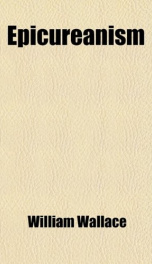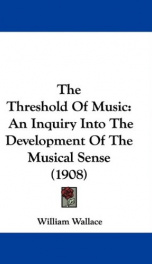epicureanism

Purchase of this book includes free trial access to www.million-books.com where you can read more than a million books for free. This is an OCR edition with typos. Excerpt from book: CHAPTER IV. DOCUMENTARY SOURCES. The student of Epicureanism is placed at a great disadvantage, as compared with the student of the other schools of ancient philosophy. The historians of Platonism and Aristotelianism have a large collection of the writings both of Plato and Aristotle, on which to base their expositions. In their case the want of authentic documents only makes itself felt when an attempt is made to trace the historical career of the two systems. There is also no doubt a textual difficulty to be met. Questions must be answered about the several portions of their reputed worksas to the genuineness of particular dialogues of Plato, or treatises of Aristotle, and as to the relations of one part of the system to another. In the case of Stoicism and Epicureanism there is quite another condition of affairs. The writings of the founders of these schools and of their early disciples have almost entirely disappeared, and we are dependent on the statements of authors who lived more than two centuries after the organization of the system. But even here Stoicism is better off than Epicureanism. The works of Seneca, Epictetus, and Marcus Aurelius exhibit in large outlines, and amid varied surroundings, the maindogmas of the ethical creed of the Porch, as it was understood and practised in the first and second centuries, A.d. We catch the general spirit of Stoicism in this way much more tangibly than can be done by observing a number of isolated aphorisms. Yet, one writer Epicureanism does possess, in whom the spirit of the system has found ample expression, coloured, perhaps, by the Roman utilitarian and didactic spirit, and by the Roman sense of dignity, and stamped with the earnestness of the man. Lucretius, in his poem on the nature of things, " De Natura Rerum," ha...
Info about the book
Author:
Series:
Unknown
ASIN:
B004WC50F2
Rating:
4.5/5 (3)Your rating:
0/5
Languge:
English
Users who have this book
Users who want this book
What readers are saying
What do you think? Write your own comment on this book!
write a commentGenre
if you like epicureanism try:
Other books by this author
Do you want to exchange books? It’s EASY!
Get registered and find other users who want to give their favourite books to good hands!




